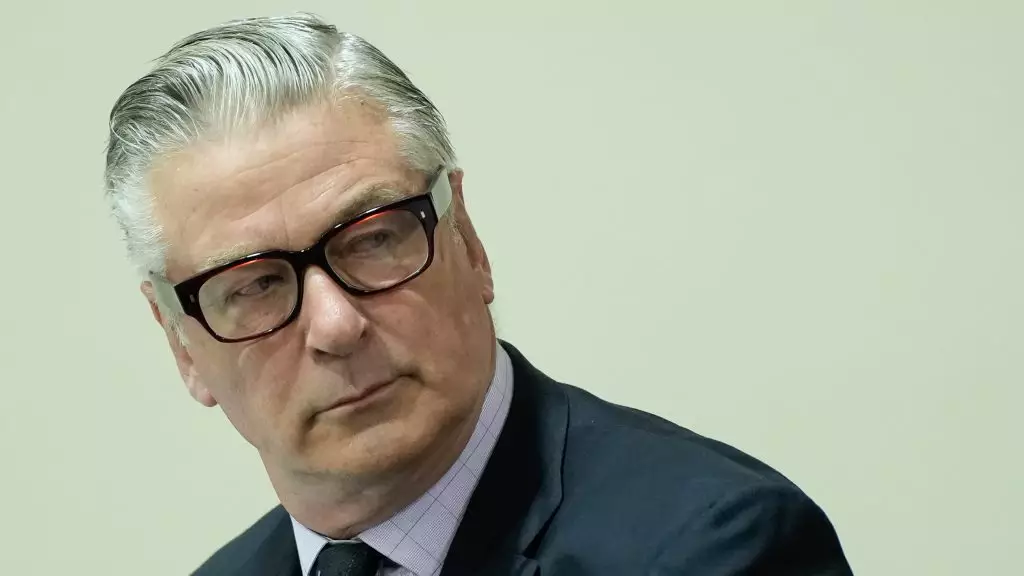Alec Baldwin, a prominent figure in Hollywood, is navigating the aftermath of the tragic on-set incident during the filming of “Rust,” which resulted in the untimely death of cinematographer Halyna Hutchins. This incident, which occurred in 2021, left a significant mark on the entertainment industry and raised urgent questions about safety protocols on film sets. After the involuntary manslaughter charges against Baldwin were dismissed in July, he has expressed a fervent desire to set the record straight and share what he perceives as the truth surrounding the events that led to such a devastating outcome.
Baldwin’s assertion that “there’s more to come” signifies his intention to regain control of his narrative, an endeavor he feels has been distorted by media portrayal and public perception over the past three years. Speaking candidly on David Duchovny’s “Fail Better” podcast, he underscored a sentiment shared by many public figures who find themselves at the mercy of public opinion: the contrasting experiences of being vilified and misunderstood. His resolve to “expose what really happened” reflects a broader theme in the world of celebrity where transparency is often sought after a scandalous event.
Baldwin feels that the media has played a significant role in shaping the narrative against him. He accused the press of selectively amplifying stories that were damaging to his reputation while suppressing information that might have portrayed him in a more favorable light. This dynamic is not uncommon in high-profile cases where coverage can sway public opinion before all facts are laid bare. Baldwin’s frustration is palpable as he voices a desire for an opportunity he claims was denied: a comprehensive trial that might have highlighted evidence favorable to his side.
His observations about the media’s demeanor draw attention to a part of the entertainment landscape that often goes unexamined. In an age where sensationalism frequently triumphs over thorough journalism, Baldwin’s plight underscores the dangers of an uncritical media landscape. When a figure of his stature faces scrutiny, narratives can quickly morph from fact-based accounts to speculative and often damaging assumptions. Baldwin’s declaration that “people have just dined out” on his misfortune serves as a critique of both the media and a certain segment of society that revels in downfall and demise, particularly when it concerns Hollywood figures.
His comments about the reaction of political factions—where enemies are sought to be “put in prisons for years,” or “canceled”—highlight a larger cultural phenomenon in America that has exploded over the past decade. The stakes of public opinion have reached fervent levels, leading to what Baldwin describes as a desire among some to see their adversaries suffer socially, professionally, or even personally.
Looking Ahead: The Promise of Revelation
Despite the turbulence of the past few years, Baldwin remains optimistic about the future of his career, suggesting that “things are coming back [his] way.” This optimism may be rooted in the potential revelations he claims will emerge from ongoing legal pursuits. His longing for a comprehensive narrative to emerge after legal proceedings suggests a belief that clarity will ultimately aid in restoring his image. Whether or not the anticipated revelations will satisfy public curiosity remains to be seen, but Baldwin seems determined to ensure his voice will be part of the discussion.
As he plans a brief retreat for personal reflection, Baldwin acknowledges the importance of taking a step back to recharge before reengaging with the complexities surrounding the Rust shooting. This moment of respite appears crucial for Baldwin not only personally but also professionally as he aims to shape the narrative on his own terms.
The story of Alec Baldwin is more than just a legal case or an actor’s misfortune; it reflects a pervasive culture of backlash and redemption in the public eye. As he embarks on this quest for truth and understanding, both his journey and the lessons drawn from it resonate beyond the confines of Hollywood, urging a reconsideration of how narratives are formed and the implications they have on individuals’ lives and careers.


Leave a Reply